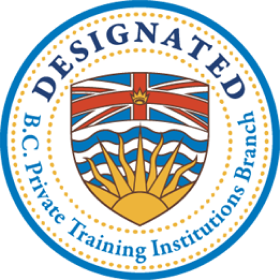GET MORE INFO NOW!!!
Start your journey towards a new career today by requesting program details.
 Financial Assistance
Financial Assistance
 Career Options
Career Options Start Dates
Start Dates Job Opportunities
Job Opportunities

Posted by AOLCC | 24th December 2024

In community service work, success goes beyond technical skills; it hinges on emotional intelligence in community service work and a deep understanding of people. This vital trait empowers professionals to build meaningful connections, navigate challenging situations, foster trust, and effectively support those in need.
Emotional intelligence in community service work involves recognizing and managing one’s emotions while understanding and influencing the emotions of others. In a field where workers often interact with vulnerable populations, this ability is vital.
Community service workers can create a safe and supportive environment by being attuned to clients' emotional states. For example, they may use empathy to validate clients' feelings, making them feel heard and understood. This can significantly impact how clients engage with services and progress toward their goals.
Moreover, emotional intelligence equips workers to handle high-stress situations calmly, ensuring they can provide effective guidance even when tensions arise during client interactions.
Building trust forms the foundation of many community service worker responsibilities, and emotional intelligence plays a key role in fostering this trust. When community service workers demonstrate genuine care and understanding, clients are more likely to open up and share their experiences.
Empathy, a critical component of emotional intelligence, enables workers to put themselves in their clients’ shoes. This perspective helps them address clients’ unique challenges and develop personalized solutions.
Effective communication, another facet of emotional intelligence, ensures that messages are clear, respectful, and culturally sensitive, which is crucial when working with individuals from diverse backgrounds.
These communication skills and other key emotional intelligence abilities form the foundation of successful community service work. Let’s examine the essential emotional intelligence skills that every community service worker should cultivate.

Building trust forms the foundation of many community service worker responsibilities.
Five essential emotional intelligence skills for community service workers include self-awareness, empathy, emotional regulation, active listening, and interpersonal communication. Let’s explore how each skill applies to community service workers:
Self-Awareness
Self-awareness helps workers recognize their emotional triggers and biases, ensuring these do not interfere with their professional responsibilities. Being mindful of their emotions allows them to respond thoughtfully rather than impulsively in challenging situations.
Empathy
Understanding and sharing the feelings of others is central to building trust and rapport with clients. Empathy enables workers to connect with clients deeper, making them feel valued and respected.
Emotional Regulation
Community service workers often face emotionally charged situations. Staying composed and focused is critical for resolving conflicts and providing effective support.
Active Listening
Listening with full attention helps workers understand their client’s needs and concerns thoroughly. This skill also reassures clients they are being heard, fostering stronger relationships.
Interpersonal Communication
Clear and compassionate communication is essential for building trust, delivering guidance, and ensuring clients feel comfortable during interactions.
The importance of emotional intelligence in community service cannot be overstated. It empowers workers to build meaningful connections with clients, address their needs with sensitivity, and handle complex situations gracefully.
For aspiring professionals, developing emotional intelligence is as critical as mastering technical skills. The ability to combine both ensures they are well-prepared to navigate the multifaceted demands of this rewarding field.

The importance of emotional intelligence cannot be overstated in community service.
At AOLCC BC, our Community Service Worker Diploma program helps you develop skills like empathy, communication, and emotional regulation through addiction support, case management, and community development modules.
Hands-on training during our Preceptorship will give you real-world experience to thrive in this impactful career. Join a program designed to prepare you for success while making a real difference in the lives of others. Take the first step toward a fulfilling future today!
Are you looking for comprehensive Community Service Worker Training in BC?
Contact AOLCC BC for more information.
What is the role of emotional intelligence in community service work?
Emotional intelligence in community service work involves recognizing and managing one’s emotions while understanding and influencing the emotions of others.
How does emotional intelligence improve client interactions?
Building trust is a fundamental aspect of client relationships, and emotional intelligence plays a key role in fostering this trust.
What emotional intelligence skills are essential for community service workers?
Five essential emotional intelligence skills for community service workers include self-awareness, empathy, emotional regulation, active listening, and interpersonal communication.
Start your journey towards a new career today by requesting program details.
This fun, online quiz takes 3 minutes to complete and you’ll get a personalized report. Identify your strengths and social style plus the training and positions you’re best suited for.Get Your Career Training Readiness Score Now

B.C. Private Training
Institutions Branch

B.C.
Education
Quality Assurance
With campuses in four strategic locations, AOLCC is your go-to career college in BC
Each AOLCC campus serves as a local hub for career skills training and community connection. Whether you are searching for colleges in Kamloops, BC, colleges in Nanaimo, BC, or a career college in Kelowna, our campuses are easily accessible and connected to local employers.
699 Victoria Street
A welcoming, centrally located campus in the heart of the city
347 Leon Avenue
Serving the Okanagan with flexible programs for career starters and changers
1551 Estevan Road
Conveniently located for students on Vancouver Island seeking certificate programs
754 Goldstream Avenue
Offering diploma and certificate programs to students in Greater Victoria and beyond
Our campuses are accessible via public transit, and many offer nearby parking options. If you’re looking for career training in other BC locations, we can connect you with our extended AOLCC network.

